
6 Jun, 2023
India suffers 12-point drop in Global Muslim Travel Index rankings
India has dropped a staggering 12 points in the destination rankings of the annual Mastercard-CrescentRating Global Muslim Travel Index 2023. It is the fourth straight year of decline since 2019. Although some blame is being laid at the doorstep of the Covid-19 crisis, most of it is being directly attributed to the anti-Muslim, Islamophobic political agenda of the Narendra Modi regime, and Muslim travellers’ perceptions of destinations where they will feel neither welcome nor safe.
The 8th edition of the Mastercard-CrescentRating Global Muslim Travel Index (GMTI) 2023 report, released last week, ranks India 69 out of 138 destinations catering to Muslim travellers, down from 57 in 2022 and 41 in 2019. It has dropped a precipitous 28 places in rankings since 2019 and is no longer in the Top 20 rankings of the non-Islamic country destinations.
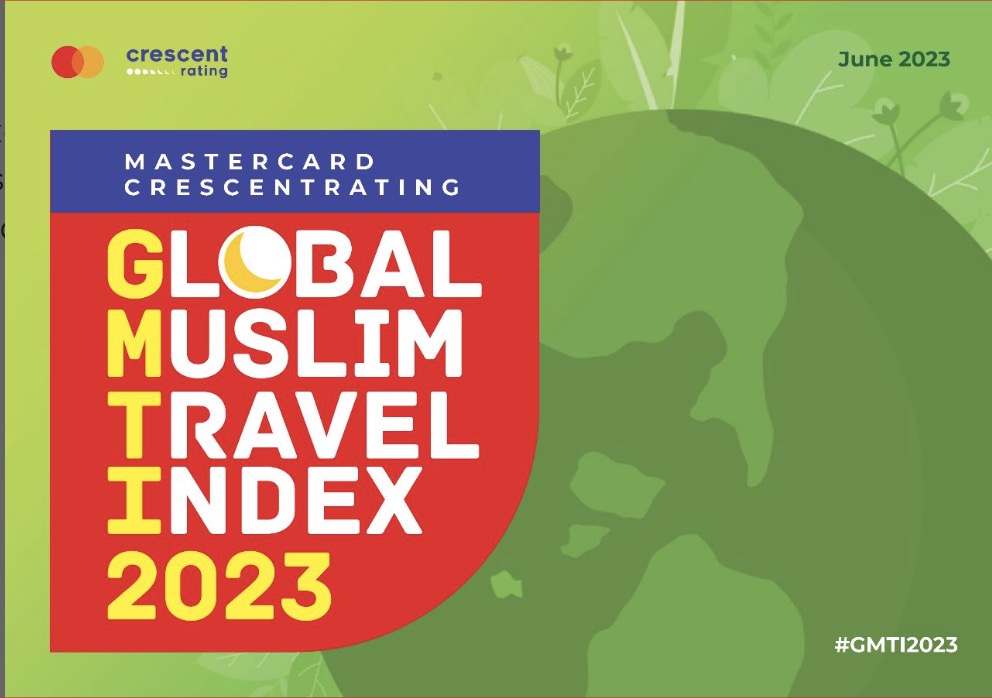
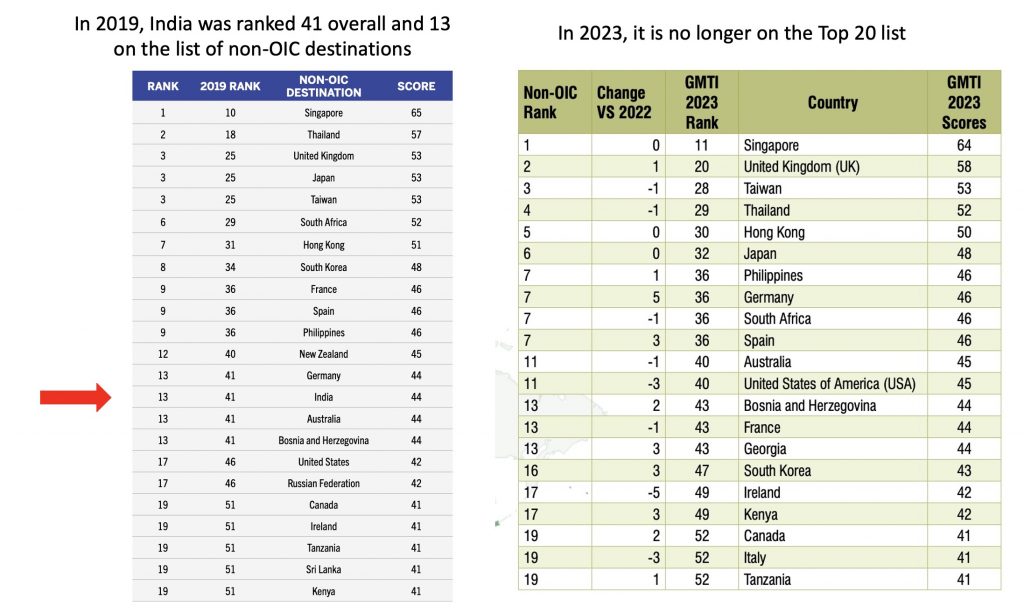
Now in its 8th year, the GMTI is designed to provide vital insights into the demographics of the Muslim travel market and equip stakeholders with the knowledge and tools to cater to its unique needs and preferences.
In his introduction to the GMTI 2023 report, CrescentRating’s Founder and CEO Fazal Bahardeen said, “In 2022, there were 110 million Muslim international visitors accounting for 12% of all international arrivals. This is a considerable growth, equivalent to nearly 68% of the pre-pandemic levels seen in 2019. We predict that Muslim traveller arrivals will rise to 140 million in 2023 and recover to the pre-pandemic levels of 160 million in 2024. Our projections are that Muslim arrivals will reach 230 million by 2028, with an estimated expenditure of USD 225 Billion.”
The official press release on the report quoted Mr Bahardeen as saying, ““While by no means a monolith, Muslim travelers are often looking for their travel plans to align with certain faith-oriented criteria, such as availability of Halal foods, rooms for prayer, and encouraging communications and messaging from destinations. Over the years we’ve conducted this research, we’ve consistently seen markets that prioritize these requirements perform well among Muslim travelers, and so it is our hope that the 2023 edition offers insights that will allow destinations to garner more understanding, more inclusivity, and ultimately, a closer relationship with this demographic.”
Click here to access the report free.
The report classifies destinations in two categories: 1. Member states of the Organisation of Islamic Countries (OIC) and 2. Non-OIC countries. This year, Indonesia and Malaysia shared the top spot amongst the Islamic countries, while Singapore, UK, Taiwan and Thailand led the rankings of non-OIC countries.
The scores are based on the ACES Framework which measures Access, Communications, Environment, and Services. This model evaluates the level of inclusivity and support for Muslim travelers that destinations provide:
• Ease of access to the destination
• Communication, internal and external, by the destination
• Environment at the destination
• Services provided by the destination
The comprehensive score for each destination is determined by calculating the weighted average of the four main categories. This final score offers “a robust and fair representation of the destination’s Muslim-friendliness.” Based on the score, destinations are ranked from 1 to 140, one being the best. Hence, Malaysia and Indonesia are No. 1 with a score of +70.
It is a proven fact that leisure travellers select destinations based on the image and perception of those countries as being safe, welcoming and catering to the specific requirements of that customer segment. Under the Modi regime in India, these headlines that have dominated the global media, garnering even more attention amongst Muslim populations.
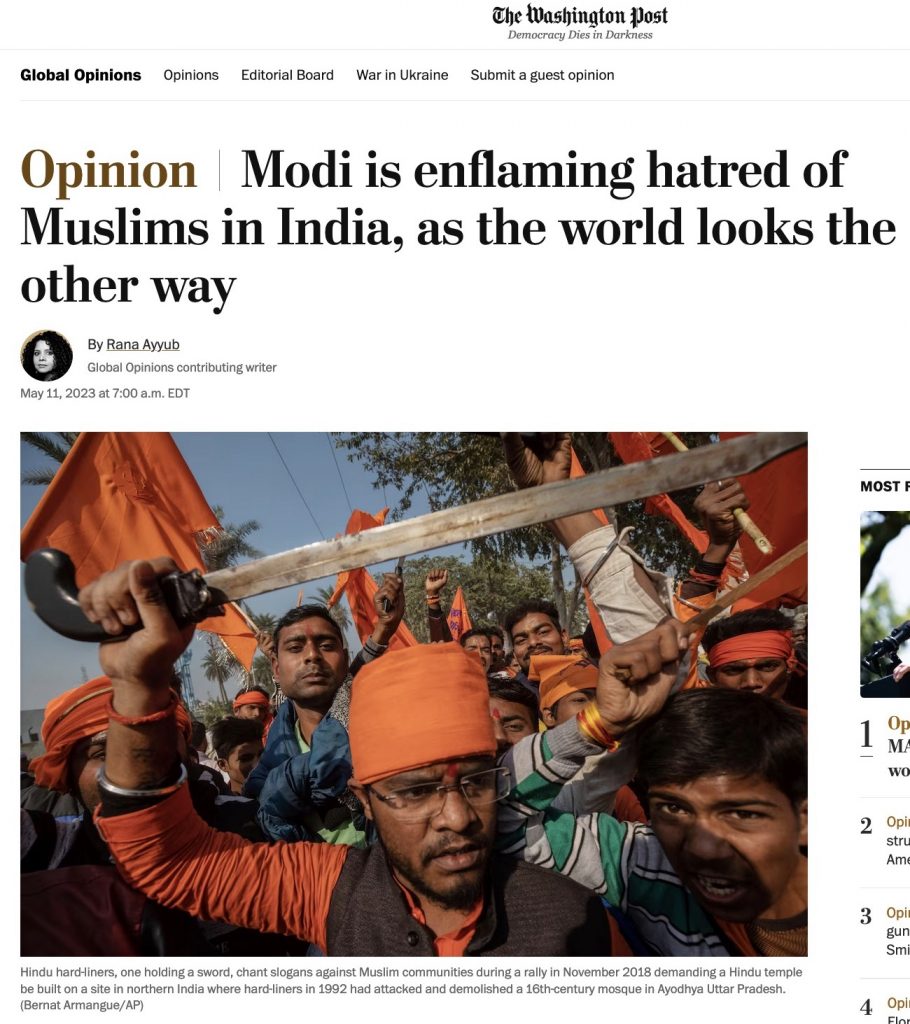
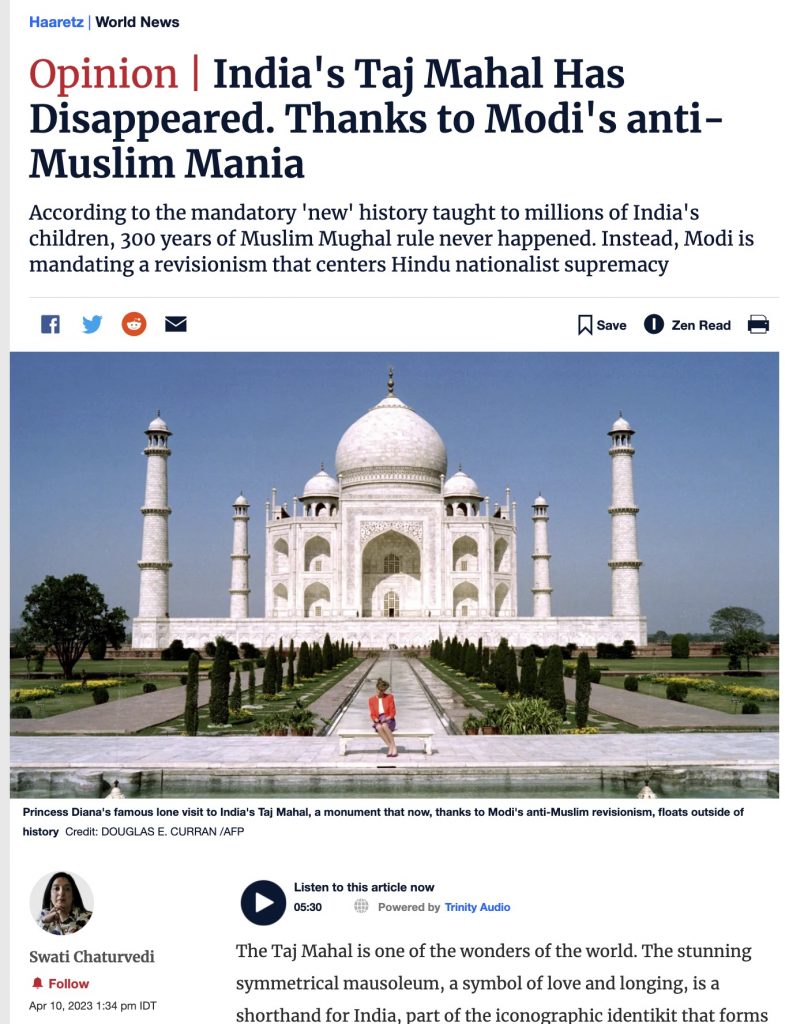
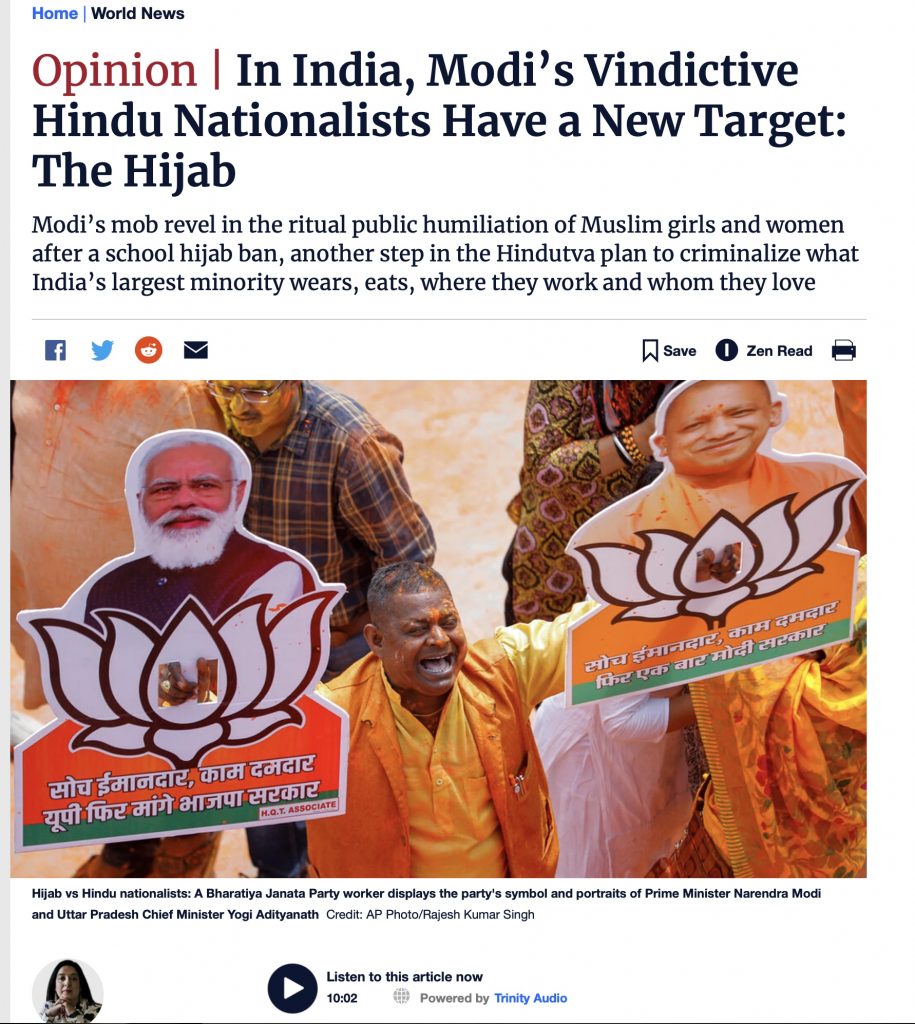
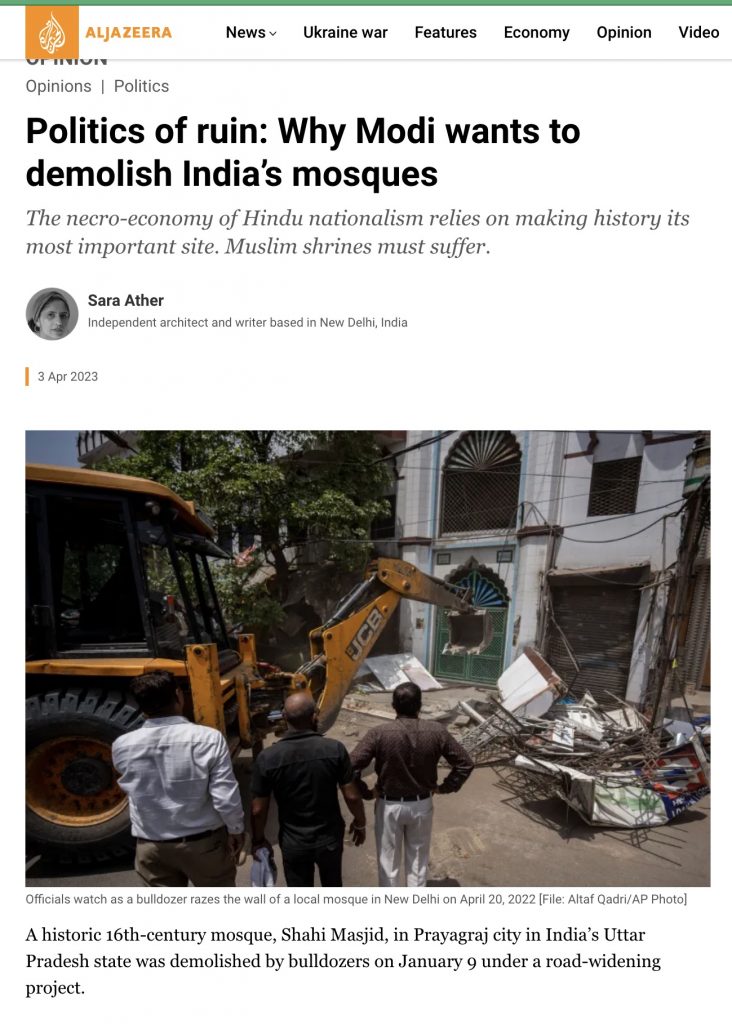

Many Muslim civil-society, academic and activist groups are monitoring the impact of the numerous travel and visa curbs placed on Muslim travellers in the aftermath of the 9/11 attacks in the United States. Although blatantly discriminatory, these curbs have so far been ignored by international travel industry organisations. That may change in future, with reports such as the GMTI providing clear examples of how destinations reap the benefits of being seen as Muslim-friendly, while others don’t.



Liked this article? Share it!